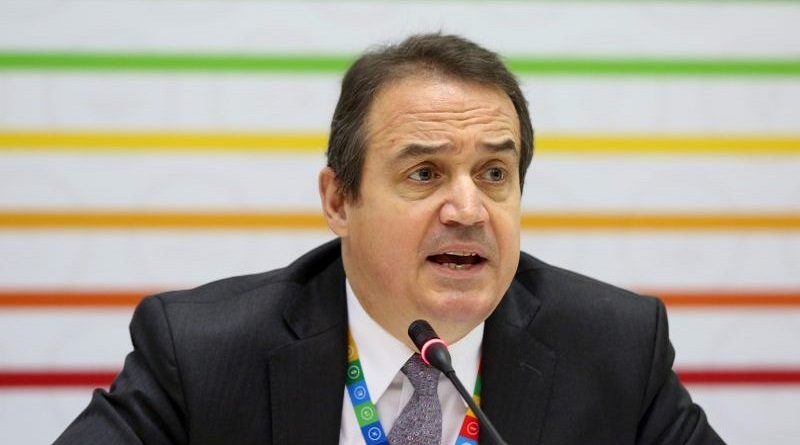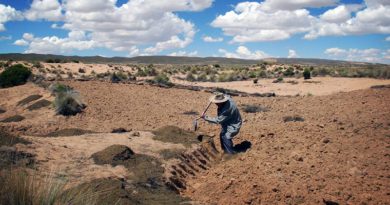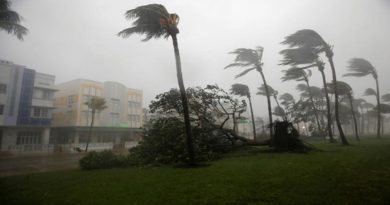GCF Board approves $325.2m, policies for accelerated climate action
The Green Climate Fund (GCF) Board has closed its 32nd meeting, approving four new climate projects worth USD 301.5 million in GCF funding and USD 1.7 billion in co-financing. Including the approval of tranche two funding for an approved project, USD 325.2 million of GCF funding was approved for climate action.
The new projects raise GCF’s total portfolio to USD 10.4 billion in GCF resources and USD 39 billion including co-financing. The newly approved projects are listed below and more details are available on the GCF website.
The Board adopted an updated Simplified Approval Process (SAP), increasing and simplifying climate finance access for small-scale projects in Least Developed Countries (LDCs), Small Island Developing States (SIDS) and African States. A new private sector strategy framework was also adopted, which will strengthen GCF’s engagement with the private sector and help to meet key strategic objectives. Finally, the Board made decisions on strategic planning and programming related to the Fund’s upcoming replenishment, including a discussion on its secondary performance review carried out by the Independent Evaluation Unit.
Hosted by Antigua and Barbuda, the four-day meeting was the first in-person meeting for Board members since the pandemic began. The island state also hosted a Technical Programming Dialogue for the Caribbean organised by GCF on 19-21 May on the margins of the meeting, convening National Designated Authorities (NDAs) and Accredited Entities (AEs) to explore regional programming priorities and opportunities.
Co-Chair Tlou Emmanuel Ramaru, from South Africa stated: “With the allocation of USD 325.2 million in climate financing by the Board, the Green Climate Fund is now investing USD 10.5 billion in low-emission, climate-resilient development. I’m particularly pleased to see the approval of new projects in vulnerable countries with two projects targeting Small Island Developing States and Least Developed Countries.”
Co-Chair Jean-Christophe Donnellier, from France, said: “Significant strides in policy consultations were made at this Board meeting towards private sector strategy and simplification of the approval process. These are clear indications that the Fund continues to improve the efficiency of the implementation of its portfolio and the Board policies that are needed to support GCF’s maturation as the world’s largest climate fund. We are pleased to note progress was also made in strategic programming. These are critical measures for GCF’s future direction as we look ahead to GCF’s second replenishment.”
GCF Executive Director Yannick Glemarec stated: “I thank Antigua and Barbuda for graciously hosting the 32nd Board meeting, which has been a highly productive one. This Board meeting and the technical programming dialogue illustrate how critical it is to deliver climate finance to SIDS, which are on the frontlines of climate change. GCF continues to accelerate climate finance with the approval of four new projects, including one in a SIDS country. The adoption of a more simplified project approval process and a private sector strategic framework will take GCF to the next level in increasing access and mobilising climate financing from the private sector for climate-vulnerable countries.”
The 32nd GCF Board meeting approved the following projects:
USD 26.2 million for Vanuatu Community-based Climate Resilience Project (VCCRP) with Save the Children Australia (FP184);
USD 65.3 million for Climate Change: The New Evolutionary Challenge for the Galapagos with Corporación Andina de Fomento (CAF) (FP185); and
USD 200.0 million for India E-mobility Financing Program with Macquarie Alternative Assets Management Limited (FP186)
GCF signed a project agreement (known as Funded Activity Agreement) for a climate resilience project in Vanuatu (FP184), immediately upon Board approval of the funding decision reflecting GCF’s commitment to move rapidly to project implementation and delivering finance quickly to SIDS and other vulnerable countries.
The following project was also approved under the SAP: USD 10.0 million for Pakistan Distributed Solar Project with JS Bank (SAP024)
USD 23.8 million was approved as tranche two funding for Promotion of Climate-friendly Cooking: Kenya and Senegal with GIZ (FP103) (tranche one funding was approved by the Board at the 22nd Board meeting).
The GCF Board approved the reaccreditation of: Korea Development Bank, based in the Republic of Korea and Conservation International, based in the United States.




